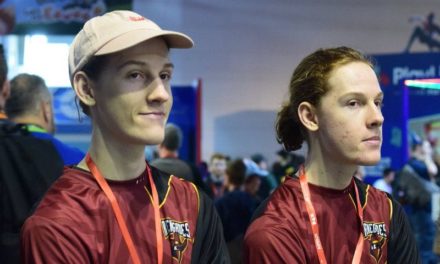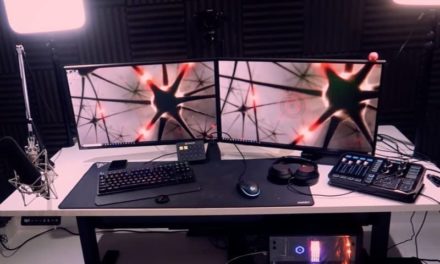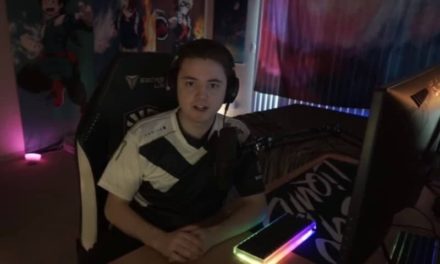n0thing is a professional CS:GO player and full-time content creator who has been part of the scene ever since he signed with Evil Geniuses for the CS 1.6 team when he was 18 years old in 2008. Although he still competes in tournaments, he has also since moved into casting tournaments as well. Aside from his impressive fps skills, he is also known for engaging with his chat and clearly explaining to them what his strategies are and answering their game-based questions. As you are likely wondering what he uses to ensure that he is also performing optimally, we have supplied a brief overview of the peripheral equipment that appears in n0thing’s gaming setup below.
WHAT MONITOR DOES N0THING USE?
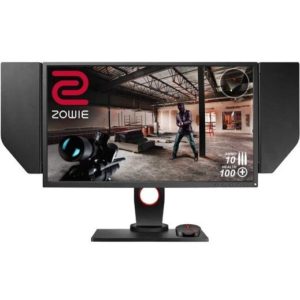
n0thing uses a BenQ ZOWIE XL2546 24.5” monitor. The XL2546 is a 24.5″ high-end gaming monitor that incorporates features that are specifically designed to enhance fps gameplay Some of these include its Proprietary Dynamic Accuracy Technology (DyAc), Black eQualizer, and its S-Switch, among others. However, it does not feature N-Sync or Free Sync compatibility.
It offers an impressive refresh rate of 240Hz for a maximum resolution of 1920 x 1080p. Its contrast ratio is at 1000:1, while its dynamic contrast ratio is at 12M:1. Furthermore, its maximum brightness is at 320 cd/㎡, and it offers an aspect ratio of 16:9.
The stand provides great adjustability with options to tilt between -5°~ 20°, swivel between -45°~45°, pivot -90°/90° and to increase its height up to 14cm (5.51”.) In order to further assist with concentration, it also comes with two removable side shields that can help to block out peripheral distractions from the user’s view. Its overall dimensions are 57 x 51.5 x 22.6cm (22.44 x 20.29 x 8.9”) with a weight of 7.5kg (16.53lbs) and it can also be removed from its stand for VESA-compatible wall mount of 100mm x 100mm.
WHAT MOUSE DOES N0THING USE?
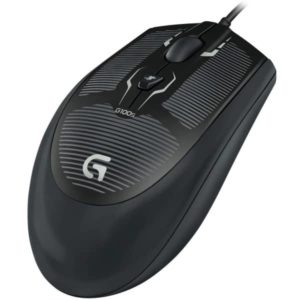
n0thing uses a Logitech G100s mouse. Surprisingly, n0thing’s gaming setup features a relatively basic wired gaming mouse that leaves out unnecessary extras such as RGB lighting effects. However, it does still have four programmable buttons. Its Delta Optical sensor offers a range of 250 – 2,500 dpi that can be set through the Logitech Gaming Software. Its preset levels are 1,000, 1,750 and 2,500 dpi.
It operates at maximum acceleration of 20G combined with a maximum speed of up to 3m/s. It also has an ambidextrous design that is suitable for all grip types, as well as a 1m (3ft) rubber cable. Its dimensions are 24.99 x 22 x 10.01cm (6.2 x 4.9 x 1.9″) and it weighs just 22.68g (0.8oz.)
WHAT MOUSEPAD DOES N0THING USE?
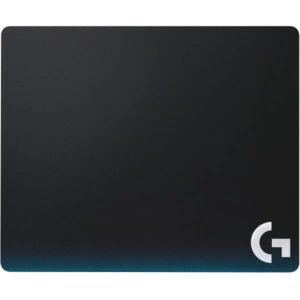
n0thing uses a Logitech G440 mousepad. The G440 is a hard polymer gaming mousepad that provides a low surface friction so as to improve sensor’s DPI tracking for high-speed gaming. It has a triple-layered construction for added durability, one of which is its non-slip rubber base. Its dimensions are 34 x 0.3 x 28cm (13.39 x 0.12 x 11.02″) and it weighs (8oz.) It cannot be rolled for storage purposes.
WHAT KEYBOARD DOES N0THING USE?
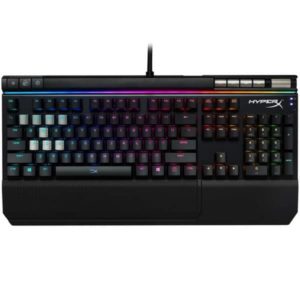
n0thing uses a HyperX Alloy Elite RGB keyboard. The HyperX Alloy Elite RGB is a wired mechanical gaming keyboard with a sturdy construction comprising of a solid steel backplate and plastic casing. It comes in a choice of three Cherry MX witches, namely Blue, Red and Brown. These are topped with removable keycaps. It also comes with a set of 8 silver textured fps keycaps and keycap puller.
Although it doesn’t have dedicated macro buttons, it does allow for 3 macro profiles to be saved directly on the keyboard. The per-key RGB lighting and profiles can be set through the HyperX NGenuity software and there are five lighting effects to choose from. It has three buttons in the top left corner for controlling brightness, switching profiles and locking Windows. On the top right is a set of multimedia controls and volume wheel. There is a set of angled flip-feet to provide extra comfort while typing, as well as rubber feet to keep it from sliding or damaging the desk during use. It has dimensions of 44.4 x 16.9 x 3.9cm (17.48 x 6.65 x 1.53″) and weighs 1.6kg (3.5lbs).
WHAT HEADSET DOES N0THING USE?
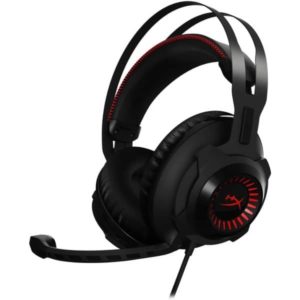
n0thing uses a HyperX Cloud Revolver headset. The HyperX Cloud Revolver is a plug-n-play gaming headset constructed from a solid steel frame, leterete-padded earcups and a self-adjusting, elastic headband. Its 50mm neodymium drivers offer a frequency response range of 12 – 28,000Hz at a nominal impedance of 30 Ω and operate at a sound pressure level of 104.5dBSPL/mW @ 1kHz.
Its detachable microphone is both TeamSpeak and Discord certified, thereby ensuring quality vocal recordings. It has a unidirectional design and its electret condenser capsule offers a 50Hz-18,000Hz frequency response range. The dimensions are 24.4 x 23.6 x 11.2cm (9.6 x 9.3 x 4.4″) and it weighs 376g (0.829lbs) with the mic.
WHAT MICROPHONE DOES N0THING USE?
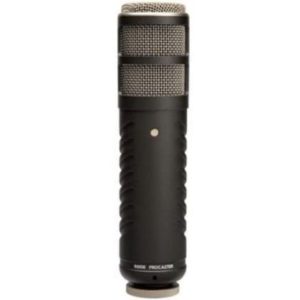
n0thing uses a Rode Procaster microphone. n0thing’s gaming setup boasts the same microphone as can be found in Pestily’s setup. It is a dynamic microphone with an all-metal construction that is designed specifically for vocal broadcast recordings. This is why its frequency response range is at 75 – 18,000Hz with a nominal impedance of 320Ω, as opposed to the usual range of 20 – 20,000Hz at a much smaller impedance.
It has a cardioid polar pattern that helps reduce unwanted background noise from filtering into recordings, as well as an internal pop-filter to stifle plosive sounds and an internal shock-mount to stabilize the recording in case of bumps. It comes with a RM2 stand mount & ZP1 zip pouch but requires the purchase of an XLR cable and audio interface device to work. It does not consume phantom power.
WHAT MIXER DOES N0THING USE?
![]()
n0thing uses a TC-Helicon GoXLR mixer. This is a compact 4-channel mixer that allows for either one XLR or one TS/TRS/TRRS microphone and one headset to be connected at a time. However, it does not support USB inputs. It is able to support up to 70 Db of gain, which means that it can translate the transmissions generated by most microphones.
The left side offers four sliders that can be used to control the microphone, music, chatting and system inputs, with each slider having its own mute button as well. The right half is divided into the top part which provides vocal effects such as pitch echo and gender-bending, while the lower section controls sample recordings that can be programmed for use during live podcasts. There is also a mute and bleep button.



